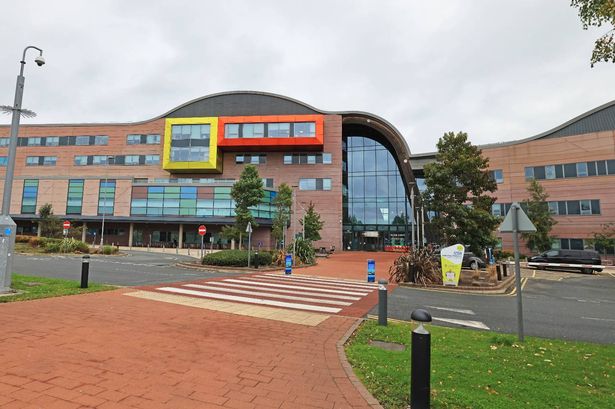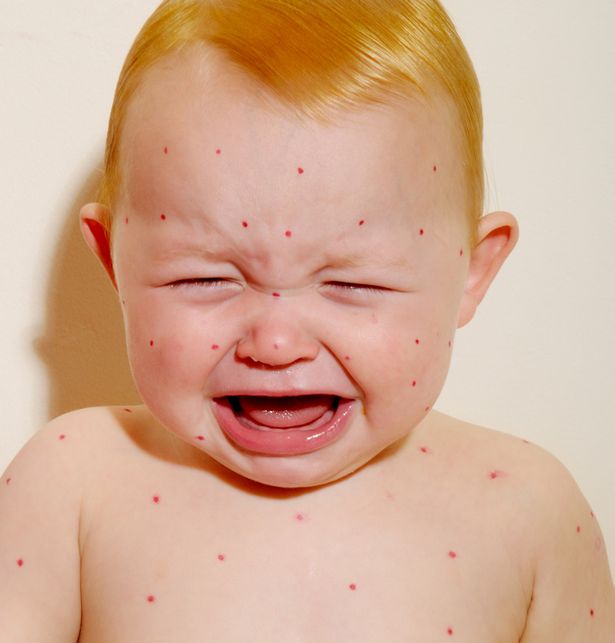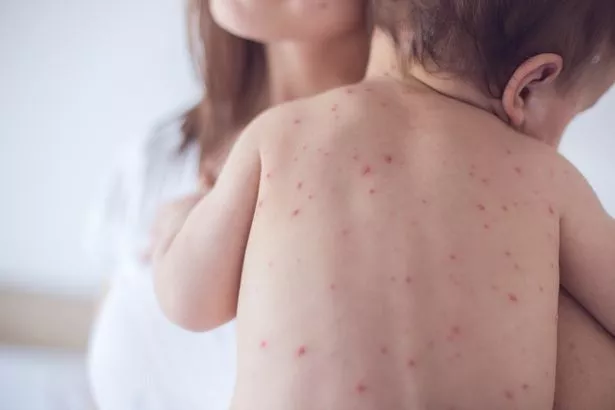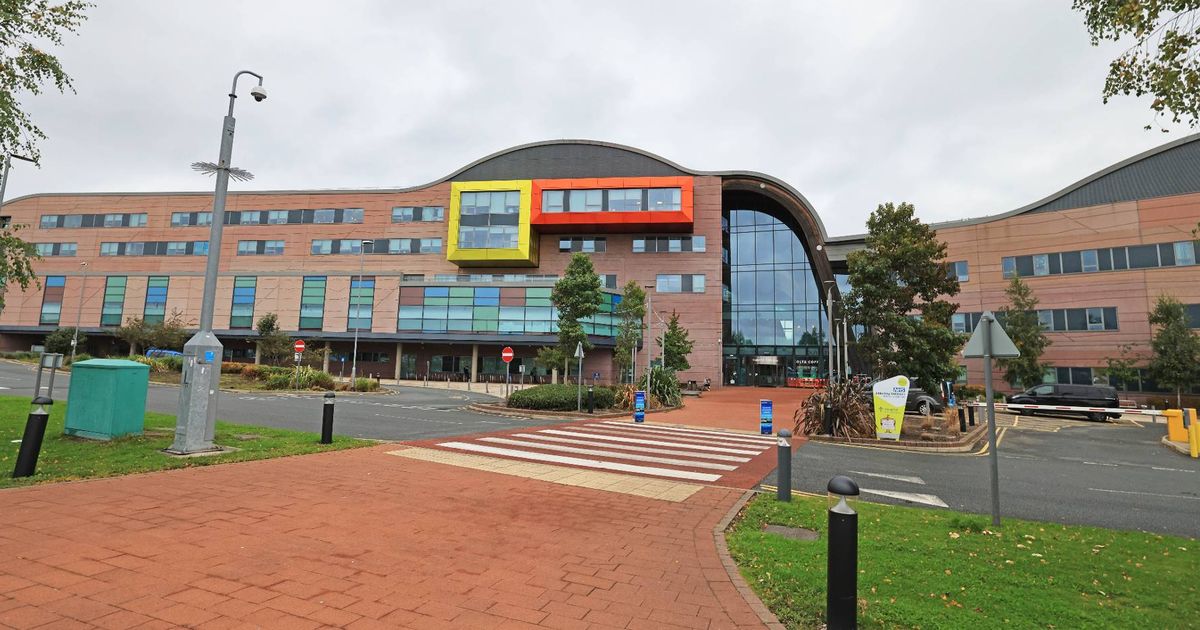Alder Hey Children’s Hospital, alongside UKHSA and Directors of Public Health for Liverpool, Sefton and Knowsley, has issued an open letter to parents as a number of children are ‘seriously unwell’ in hospital
14:38, 07 Jul 2025Updated 14:43, 07 Jul 2025
 Alder Hey Children’s Hospital, Liverpool.(Image: Colin Lane/Liverpool Echo)
Alder Hey Children’s Hospital, Liverpool.(Image: Colin Lane/Liverpool Echo)
Alder Hey Children’s Hospital has published an open letter to parents, warning of “several children seriously unwell in hospital”. The statement, shared on social media today, Monday, July 7, was jointly issued by the hospital, UKHSA and Directors of Public Health for Liverpool, Sefton and Knowsley.
The letter highlighted a recent surge in measles cases in Merseyside, posing a risk to “children and young people within our communities and our hospital.”
It further revealed that several children are “seriously unwell” and currently under treatment at the hospital. NHS chiefs attributed the rise in measles cases among children and young people to a decline in MMR vaccinations, which safeguard against measles, mumps and rubella. The letter confirmed an increasing number of children being treated at Alder Hey for effects and complications of measles.
 Typically, measles begins with symptoms akin to a common cold
Typically, measles begins with symptoms akin to a common cold
The letter also warned that children in hospital who are “very poorly for another reason”, are at a heightened risk of contracting the virus. As per NHS guidelines, measles is a highly contagious infection that can lead to severe complications in some individuals, reports the Liverpool Echo.
Typically, measles begins with symptoms akin to a common cold, followed by a rash appearing a few days later. Some individuals may also develop small spots inside their mouth.
The initial warning signs include a runny or congested nose, fever, coughing, sneezing, and red, sore, watery peepers. A rash typically emerges a few days later, kicking off on the face and behind the ears before spreading to the rest of the bod.
The rash’s spots can be raised and merge to form blotchy patches, and they’re usually not itchy. On white skin, the rash looks brown or red, but it might be trickier to spot on brown or black skin, according to NHS guidance, which adds: “It’s very unlikely to be measles if you’ve had both doses of the MMR vaccine or you’ve had measles before.”
 The rash’s spots can be raised and merge to form blotchy patches(Image: Getty Images/iStockphoto)
The rash’s spots can be raised and merge to form blotchy patches(Image: Getty Images/iStockphoto)
You should get in touch with 111 or request an urgent GP appointment if you suspect you or your little one might have measles, if your tiny tot is under one and has been around someone with measles, or if you’ve been in close contact with someone who has measles and are pregnant or have a weakened immune system.
You should also seek urgent medical advice if you or your child have a high temperature that won’t budge after taking paracetamol or ibuprofen; you or your child are struggling to breathe – you might feel more winded than usual; your baby or young child isn’t feeding well, or taking fewer feeds or fluids than usual; you or your child are peeing less than usual (or your baby has fewer wet nappies); you or your child feel utterly unwell, or you’re worried something’s seriously amiss. Those suffering from measles are advised to stay away from work, school or nursery for at least four days from when the rash first appears, and to avoid close contact with infants, pregnant individuals, and those with weakened immune systems.
The full letter from Alder Hey Children’s Hospital, UKHSA and Directors of Public Health for Liverpool, Sefton and Knowsley reads:.
A recent surge in measles cases in Merseyside is putting our children and young people at risk within our communities and our hospital. Several children are seriously ill and receiving treatment at Alder Hey Children’s Hospital.
Measles is on the rise amongst our children. We can all help stop it.
Get vaccinated now.
What is the current situation with measles in Merseyside?
We are witnessing an increase in measles cases in Merseyside with more of our local children and young people falling ill. The reason we are seeing more cases of measles in our children and young people is because fewer people are getting the MMR vaccine, which protects against measles as well as two other viruses called mumps and rubella.
The number of children being treated at Alder Hey for effects and complications of measles is on the rise. Children in hospital who are very poorly for another reason are at higher risk of catching the virus.
What is measles?
Measles is a highly contagious virus that can infect anyone who isn’t immune. The symptoms can be severe, leading to an increasing number of children being hospitalised.
In rare instances, the disease can prove fatal.
There’s no specific treatment for measles and it can strike at any age. It poses a particular threat to some of our most vulnerable youngsters, including those under one year old and those already grappling with serious illnesses like cancer.
The initial signs of measles typically include a runny nose, sneezing, coughing, and a high temperature. It may also cause red, sore eyes.
A few days later, the characteristic measles rash appears, starting on the face and behind the ears before spreading to the rest of the body.
So, how can you prevent your child from contracting measles?
The MMR vaccination is the safest and most effective defence against measles. This vaccine has been available for many years and its safety is well established.
Two doses of the MMR vaccine provide lifelong protection against measles, mumps, and rubella. The vaccination is free and can be easily obtained from your GP at any age.
For children, the first dose is usually administered at 12 months of age, followed by a second dose at around three years and four months.
Research has conclusively shown that there is no link between receiving the vaccine and developing autism spectrum disorders. Please protect yourself and our children and young people by ensuring you are vaccinated.
Anyone who suspects they or their child has measles should ring their GP surgery or NHS 111 first before showing up at a healthcare setting such as GP practice, urgent treatment centre or accident and emergency department, to help halt the spread of the virus.
